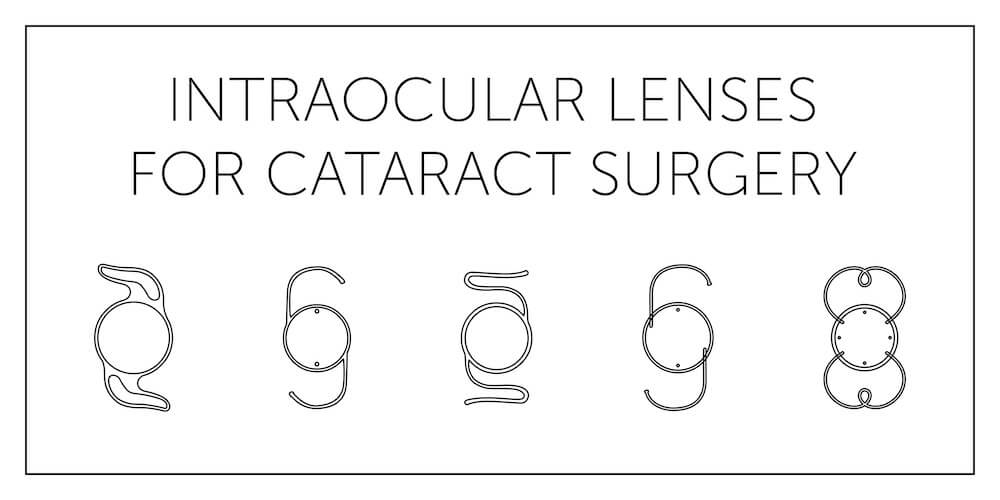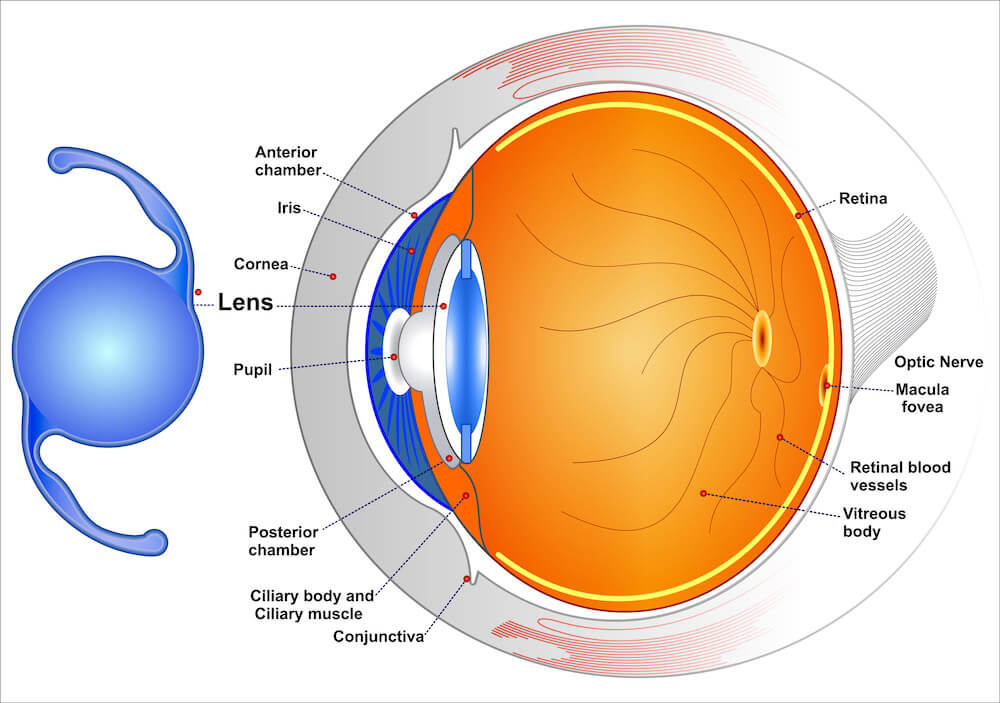
A cataract is the clouding effect on a person’s natural eye lens. These natural lenses work much like a camera, making it possible for us to focus on objects and process what we’re seeing. When cataracts form, the eye’s ability to focus on the objects before them decreases.Is surgery necessary?
Surgery is only recommended if your cataract(s) is presenting problems with daily activities such as reading or driving. Learn more about cataract surgery at Delaware Eye Care Center.Find out if you’re a candidate, take our Cataract Surgery Self-Test.

A typical indicator of cataract development is the introduction of “night halos” or glares in
vision.However, the best way to determine if you or a loved one is experiencing symptoms as the result
of a cataract is to come in for an examination.
If you answer “Yes” to any of these questions,
you may be showing early signs of cataracts, or have a cataract already.
If you have a cataract that is interfering with your normal routine or daily activities, we recommend having cataract surgery. This is an extremely safe procedure that can correct distance vision and astigmatism by removing your cataract and replacing it with a modern lens.
This new intraocular lens is permanent and eliminates the chance of future cataracts forming.
Advanced Technology Lenses are permanent, replacement lenses placed in the eye following cataract removal. Similar to a camera lens, Advanced Technology Lenses focus your vision and deliver a clear, crisp image.

Advanced Technology Lenses are far more advanced than the standard lenses used for lens replacement.
While standard lenses are effective in improving vision and delivering a clear image, premium lenses specifically correct astigmatism as well as distance, midrange, and near vision.

If you answer “Yes” to any of these questions, you may be a candidate for intraocular lenses.

No one is immune to cataracts. However, there are certain groups that are at an increased risk of developing cataracts and needing surgery. This includes, but is not limited to:
No. Cataracts can also form due to factors such as:
During cataract surgery, a surgeon removes the clouded lens and replaces it with a clear standard or
premium lens.
Modern ultrasound technology and ocular advancements have made it possible in recent
years to perform surgery with smaller incisions, resulting in shorter recovery window.To learn more
about cataract surgery, visit our procedure page.
Not necessarily. Surgery is recommended when cataract disrupts daily activities (e.g. reading or driving) however there are a number of things that can be done to manage cataract-related vision problems such as eyeglasses or other vision aides.
We ask patients to allot approximately 90 minutes for general consultations and annual assessments.